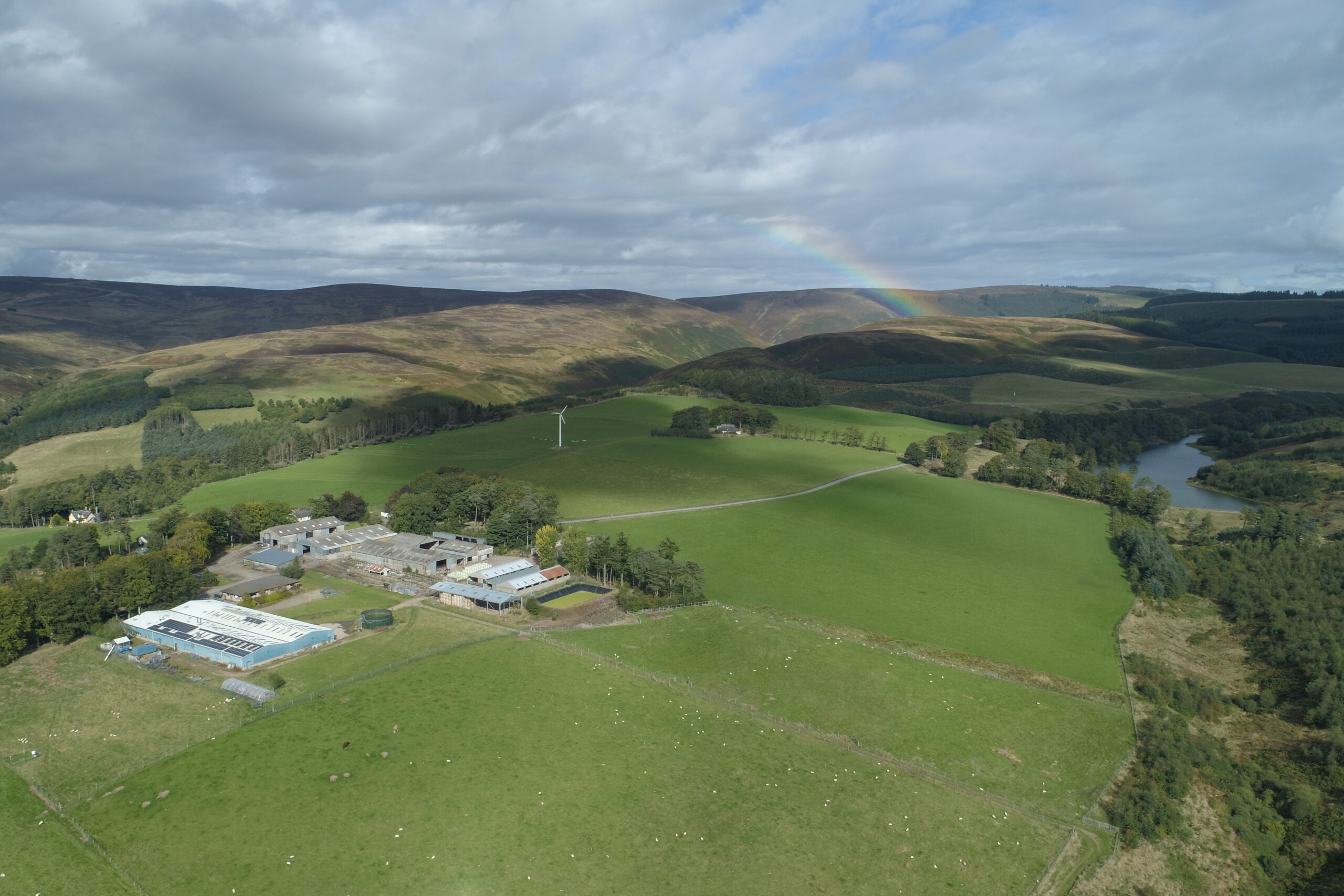Climate-Positive Farming
Glensaugh is the home of our Climate-Positive Farming Initiative.
Our Climate-Positive Farming Initiative builds on a long tradition at Glensaugh for wide-ranging research into many different elements of farming – environmental, economic and social.
Agriculture is highly exposed to climate change, and farming activities also contribute to climate change through release of greenhouse gases into the atmosphere. In Scotland, agriculture and related land use generate about a quarter of all annual greenhouse gas emissions. Achieving the UK and Scottish net-zero commitments requires changes in land use as a matter of urgency.
The Scottish Government and UK Climate Change Committee have pledged to support the necessary changes in land use to achieve net-zero and we need to progress with this as a matter of urgency.
This is our fundamental philosophy at Glensaugh
We are predicting, researching and testing how the farm responds to a suite of changes in land use, management and farm business operations. We are testing how transformational land use options result in on- and off-farm benefits or disbenefits and sharing outcomes with stakeholders. Through this approach we can demonstrate the scale and nature of transformation required in farming, and the significant contribution that the sector can make towards climate and biodiversity targets.
Climate-positive farming seeks “negative emissions” through transforming farm activities, this involves:
- producing and using renewable energy to meet the energy needs of the farm and associated households
- ‘carbon farming’ (removing CO2 from the air) through crop choice, expanding woodland, restoring habitats and soil
- innovative and transformative management to minimise GHG emissions
- protecting biodiversity
- smart water management
- selling direct from farm to table where possible
- minimising supply chain related emissions, and more…
A key to success is to achieve this as an integral part of the farm’s combined operations whilst continuing to produce food and other benefits for nature and society. Moving towards net-zero requires a transformative approach, with innovations in technology and in ways of working. Robust testing and demonstrating results on the ground is also required to help farmers, policy makers, international organisations and donors to make climate-positive farming a priority.

Learn more about our Climate-Positive Farming initiative
Check out our Climate-Positive Farming Reviews where expert scientists synthesise the latest science in key topic areas. The reviews are designed to highlight key issues, current knowledge and gaps, bringing these alive using Glensaugh as an illustrative case-study.
Our first four reviews can be downloaded here:
- Effects of land use and land management changes on soil organic carbon stocks in hill farms
- Pyrolysis and biochar as climate-positive technologies for the Scottish Uplands
- Climate-positive integrated water management systems: water and wastewater decisions on upland farms
- Unravelling the terminology and impacts of rotational grazing – what evidence is there for environmental benefits?
You can find more information on specific projects on our “Research Highlights” pages.
